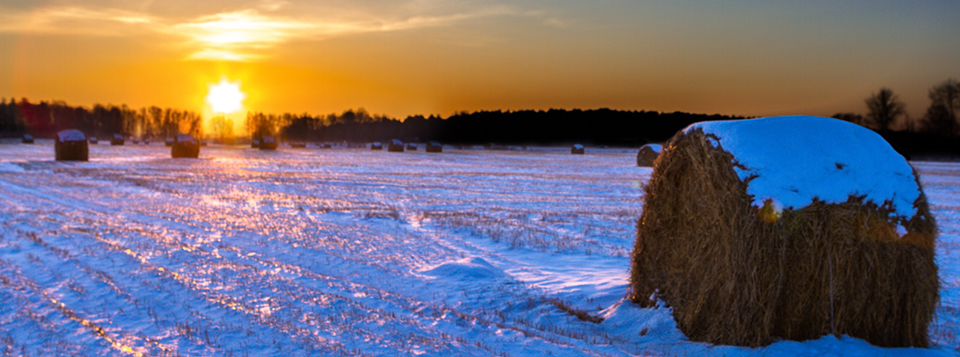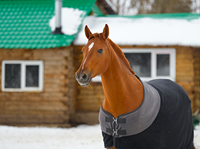Caring for your farm animals during winter

Winter in Washington state is a season of diverse challenges for farmers and their livestock.
Freezing temperatures in vary by region; Eastern Washington often faces harsher and more frequent freezes, while Western Washington experiences milder conditions, with occasional cold snaps. Recognizing the signs of cold stress, such as shivering and decreased activity, is critical. Vulnerable animals—young, wet, or short-coated—require extra attention.
The well-being of your farm animals depends on preparation and care. Here are some essential tips to help you keep your animals healthy, productive, and comfortable throughout the colder months.

1. Provide proper shelter
Farm animals are naturally resilient, but harsh winter conditions call for adequate protection:
- Draft-Free, Ventilated Structures: Ensure barns and sheds allow fresh air circulation while protecting against cold drafts.
- Dry, Warm Bedding: Use straw or shavings to insulate against the cold. Replace wet bedding frequently to prevent ammonia buildup.
- Ample Space: Crowded shelters can lead to stress and disease. Ensure each animal has enough room to move comfortably.
 2. Keep water accessible and unfrozen
2. Keep water accessible and unfrozen
Dehydration is a risk even in winter. Animals need clean, unfrozen water to stay hydrated and maintain digestion.
- Install heated waterers or trough heaters to prevent freezing.
- Check water sources daily to ensure functionality.
- Avoid relying on snow or ice as a water source, as it does not provide adequate hydration.
 3. Boost nutrition
3. Boost nutrition
Cold weather increases animals’ energy needs to maintain body heat.
- Offer high-quality hay, silage, or feed to meet caloric demands.
- Supplement diets with energy-rich grains or feed concentrates as needed.
- Provide mineral blocks or loose minerals to support overall health.
 4. Monitor health closely
4. Monitor health closely
Winter conditions can exacerbate health challenges. Regular checks are essential:
- Watch for signs of stress, illness, or injury, such as shivering, lethargy, or frostbite.
- Keep vaccinations up to date and deworm animals as needed.
- Inspect hooves regularly, especially in wet conditions that can lead to thrush.
- For poultry, ensure coops are draft-free, and roosts are wide enough to protect toes from frostbite.
 5. Prepare for emergencies
5. Prepare for emergencies
Winter storms can disrupt power and access to supplies. Be prepared:
- Stock up on feed, bedding, and other essentials before severe weather.
- Keep a generator ready for critical needs like water pumps and heated shelters.
- Assemble an emergency kit with first-aid supplies for animals.
 6. Manage manure and runoff
6. Manage manure and runoff
Washington’s wet winters can lead to muddy, unsanitary conditions.
- Use barriers like hay bales or silt fences to minimize nutrient runoff.
- Compost manure in protected areas to avoid excess moisture.
7. Tailored care for livestock 
Each type of livestock has unique needs in winter:
- Cattle: Provide windbreaks for outdoor herds and keep calving areas warm and dry.
- Sheep and Goats: Protect coats from getting wet and offer extra feed during cold spells.
- Horses: Ensure blankets fit properly, and maintain regular farrier visits.
- Pigs: Insulate pens, as pigs are especially sensitive to the cold.
- Chickens: Ensure coops are well-ventilated and draft-free to prevent frostbite and respiratory issues.
Government resources and support
Farmers affected by freezing events may qualify for assistance programs:
- USDA Programs: Emergency Assistance for Livestock (ELAP) and Livestock Indemnity Program (LIP).
- Insurance Options: Coverage for livestock losses is available through the USDA Risk Management Agency.
- Local Resources: Contact your county extension office or the WSDA for guidance on state-level support.
By taking proactive steps, you can keep your farm animals healthy and your operations running smoothly during winter. The Washington State Department of Agriculture is here to help farmers succeed year-round. For more tips and resources on winter farm management, visit our website or contact us directly.
Stay warm, stay safe, and take care of your farm family this winter!
